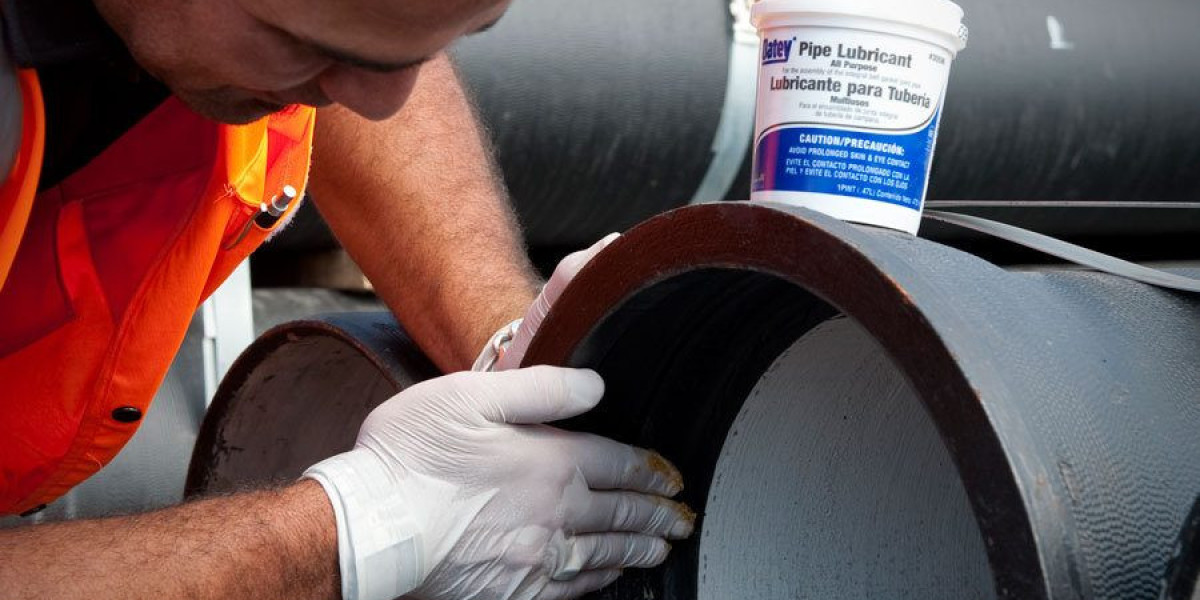In any piping system, long-term durability and smooth performance are key goals. Whether you're working with water pipes, gas lines, or industrial plumbing, keeping those pipes protected from wear, rust, and pressure is important. One simple product that makes a big difference is pipe grease. Though small in quantity, it plays a large role in the life and health of your piping system.
This article will explain what pipe grease is, how it works, and why it is essential for extending the life of your pipes. We’ll also explore the common uses and benefits, all in simple language anyone can understand.
What Is Pipe Grease?
Pipe grease is a type of lubricant designed to reduce friction and protect the surfaces of pipes and fittings. It is commonly applied during the installation and maintenance of pipe systems. Pipe grease is thick, sticky, and water-resistant. It forms a protective layer between the pipe surfaces, preventing metal parts from rubbing directly against each other.
Pipe grease is used in many industries, such as plumbing, oil and gas, construction, and water treatment. It can be used on metal, plastic, or rubber fittings. The goal is to make connections smoother and reduce the chances of damage.
Why Do Pipes Need Protection?
Over time, pipes face many challenges:
Friction: When two pipe parts are joined, they may rub against each other during pressure changes or movement.
Rust and Corrosion: Moisture, chemicals, and air can cause pipes to corrode.
Freezing or Heat Damage: Extreme temperatures can weaken joints.
Wear and Tear: Constant use and pressure inside the system can lead to damage.
All these issues can lead to leaks, pipe bursts, or full system failures. That’s where pipe grease comes in. It acts like a shield, helping pipes last longer and work better.
How Pipe Grease Helps
1. Reduces Friction During Installation
When plumbers or technicians install pipes, especially threaded ones, they often face friction. This friction can damage the threads or make it hard to fit parts together. Pipe grease makes the threading smoother, allowing the parts to fit without forcing them. This reduces strain on the material and lowers the chance of cracking or warping.
2. Prevents Rust and Corrosion
Moisture is one of the biggest enemies of metal pipes. Even a small amount of water can cause rust over time. Pipe grease forms a thick layer on the surface of the metal, preventing moisture and air from coming into direct contact with it. This barrier helps stop rust from forming and keeps the metal in good condition.
3. Improves Sealing
Pipe grease also improves the sealing of pipe joints. It fills in small gaps and irregularities between connected parts, making the seal tighter. This reduces the risk of leaks, especially in pressurized systems like gas or water lines.
4. Protects Rubber and Plastic Parts
Some piping systems include rubber or plastic components like O-rings and seals. These parts can dry out or crack over time. Pipe grease helps keep them soft and flexible. This protection ensures that seals remain tight and don’t break down early.
5. Makes Maintenance Easier
During routine inspections or repairs, pipes often need to be taken apart. Without pipe grease, parts can stick or become hard to remove. Greased parts, on the other hand, come apart easily. This saves time and avoids damage to the pipe or fittings.
Where Is Pipe Grease Commonly Used?
Pipe grease is used in many different pipe systems. Here are some common examples:
Plumbing Pipes: To connect bathroom, kitchen, or outdoor pipes smoothly and prevent leaks.
Gas Lines: To seal joints safely and prevent gas from leaking out.
Industrial Pipes: In factories, where high pressure and temperature changes occur.
Water Wells and Pumps: To protect pipes that are placed deep underground.
Sewer Systems: To help in assembling large pipes and keeping seals working well.
What to Look for in a Good Pipe Grease
Not all pipe greases are the same. If you want the best performance, here are a few features to look for:
Water-Resistant: Grease should not wash away when wet.
High-Temperature Resistance: It should stay effective even in hot conditions.
Chemical Resistance: Should not break down if exposed to chemicals or cleaning agents.
Non-Toxic: Especially for pipes carrying drinking water.
Long-Lasting: Grease should stay in place for years without drying out.
Choosing the right type of pipe grease depends on the type of piping system you have. For example, a home plumbing system may need a different type than an oil or gas pipeline.
How to Apply Pipe Grease
Applying pipe grease is simple, but it should be done properly:
Clean the Surface: Make sure the pipe threads or surfaces are free of dirt, dust, and old grease.
Apply a Thin, Even Layer: Use a small brush or your finger (wear gloves) to apply a thin layer to the threads or connection points.
Avoid Overuse: Using too much can make joints slippery and affect sealing.
Assemble the Parts: Fit the pipes together as usual.
Wipe Off Excess Grease: Remove any extra grease around the outside.
Always follow safety instructions and use gloves when working with any type of grease.
Benefits of Using Pipe Grease
To summarize, here are the top benefits of using pipe grease in any system:
Longer pipe life
Fewer leaks
Better seal and fit
Protection from rust and corrosion
Easier future maintenance
Cost savings over time
Final Thoughts
Pipe grease may seem like a small part of your piping system, but its impact is huge. It plays a vital role in reducing wear, preventing corrosion, and helping your system run smoothly for years. Whether you are a contractor, technician, or homeowner, using pipe grease is a smart and simple way to protect your investment.














